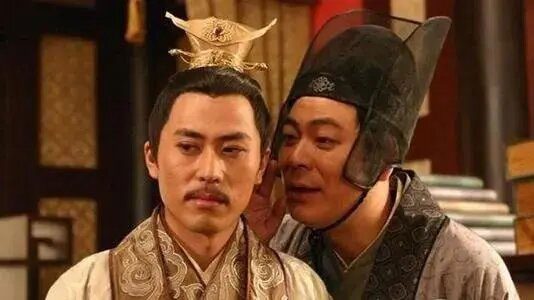In feudal China, it was believed that the world belonged to the emperor, and everyone had to submit to him. The emperor’s harem included numerous concubines and beautiful women.
According to Sina, an average emperor had between 70 to hundreds of consorts. Despite the large number, only a few were favored, while the rest were either forgotten, never saw the emperor’s face, or were banished to the inner court for some offense. As a result, some concubines formed alliances with the eunuchs close to the emperor. Why did these concubines do this?

Concubines often sought ways to become “close” with the eunuchs near the emperor. (Photo: Sohu).
Why do concubines “collaborate” with eunuchs?
There are three reasons why concubines were willing to “collude” with eunuchs.
First, in historical dramas about ancient Chinese palaces, we often see that although there are many concubines, only those who are favored and bear children for the emperor have a chance to catch his attention. They also leverage their children to rise in status.
Second, concubines often bribed the eunuchs with money and jewels to help them gain wealth. In return, the eunuchs would provide them with information about the emperor, such as his preferences, where he would go, and what he usually did. This way, the concubines could use this information to win the emperor’s favor. Once a concubine achieved a higher status, she would often grant the eunuchs many rewards.

Concubines often sought to extract information about the emperor from the eunuchs. (Photo: Sohu)
Third, concubines “collaborated” with eunuchs to increase their power within the palace. From the eunuchs close to the emperor, they could learn which beauties the emperor favored. Sometimes, the empress and concubines formed factions, colluding with the eunuchs to harm each other and cause one another to lose favor.
In reality, throughout Chinese history, there have been many recorded plots of intrigue within the imperial palace. One notable case is of Zhao Xin during the Han Dynasty. At that time, Emperor Liu Qu loved a beautiful concubine named Wang Yang. Zhao Xin, feeling jealous, falsely accused Wang Yang of plotting against the emperor. The emperor believed the accusation and ordered Wang Yang to be tortured. She managed to escape and tragically committed suicide by jumping into a well.
During the Tang Dynasty, Wu Zetian killed her newborn child and framed Empress Wang for the act. As a result, the empress was deposed, and Wu Zetian became the new empress. After Empress Wang was banished to the inner court, Wu Zetian even ordered her subordinates to torture her with cruel methods to avenge the threats and schemes she had faced.

If concubines are favored by the emperor, the eunuchs also benefit. (Photo: Sohu).
Later, during the Ming Dynasty, Imperial Concubine Wan Gui of Emperor Ming Xianzong, due to her inability to bear children, made sure that no one else could give birth to the emperor’s heirs. A concubine named Qi became pregnant and gave birth to a baby boy, but fearing for their safety, a eunuch hid the child in a safe place. Some time later, when the emperor learned of the situation, he was overjoyed and welcomed both mother and child into the palace. Wan Gui was furious and immediately killed Qi. The terrified eunuch swallowed gold and committed suicide.
- Why must concubines lie still for eunuchs to touch their bodies after the emperor’s visit?
- Why was the emperor not worried about sending male physicians to examine the concubines in the inner court?
- Why did the concubines who were buried alive with Qin Shi Huang not close their legs after being buried?





















































